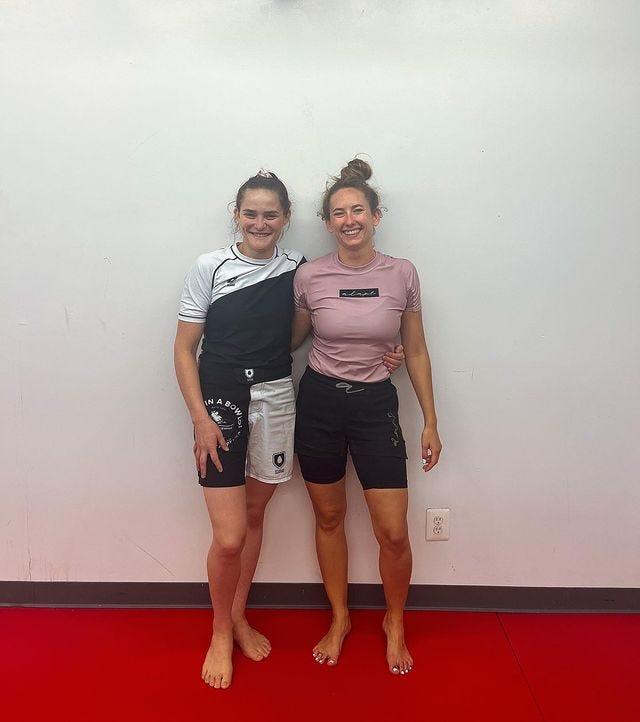Train your brain for competition success: tips from a confidence coach
Written by Vicky Beckett, Tuesday 22nd October 2024
Everyone who has competed in martial arts will know that one of the hardest aspects is managing your own mind. Jade Rambaut is a qualified neuro-linguistic programming (NLP) coach – a technique that helps break mental barriers through language, fostering growth and change. Her role centres around helping clients understand their own minds, their behaviours and how to manage emotions and moods. This has led her to work with a wide range of individuals from Hollywood actors to MMA fighters and jujitsu athletes when competing. We spoke to Jade about how she helps athletes become mentally fit before they compete.
Tell me about some of the fighters that you’ve worked with?
My first client was Louis Bricuss, who recently went pro in MMA. I work with Melissa Hill and Peyton Letcher. I co-sponsored Peyton’s trip from New York to the UK to debut on GrappleFest with Adapt Jiu Jitsu. I had met her a few times in New York and had private jiu jitsu lessons with her. I'd always been surprised at how under the radar she seemed to be despite her competition history, so I wanted to support.
What do you focus on when working with fighters?
While everyone requires a slightly different approach, for all the fighters I work with, it's not really about their competition or their opponent. You don't want to focus on that. You want to focus on the foundations of the person, so no matter what happens on the mats or in the ring, they're mentally solid.
What helps an athlete leading up to an important fight or competition?
It is important that they know they are more than their best days and much more than this skill they work at tirelessly. People in general – myself included – tend to tie their identity to only their good and best days. So much so that people will say things like, "I don't feel like me", "that's not me" and "so unlike me". This makes the emotional drop in those "bad days" much more significant because you're treating yourself like an alien, someone you don't know and don't want to be around.
“Bad days, failure and losses are all rich in data”
You are all your days. It's cliche but you hold value as a human every day and you deserve to treat yourself as such. Accepting this is important as it's a hell of a lot easier to move from the place you’re at when you acknowledge you’re there.
What’s more, bad days, failure and losses are all rich in data. If someone has had a competition performance or otherwise and they want to "fix it", the sooner we can pull apart the data and cultivate a plan from it, the sooner they will be able to grow from that experience. The productivity of that exercise also soothes their sense of disappointment.
As a coach, it's easier to work on reframing an event or feelings around worth when the client isn’t drowning in it. Clients generally don’t listen to what I’m saying about value and identity if they’re drowning. We need to get them a little back towards the control they crave to be able to take pause and question, what happened there specifically?
What is the most challenging aspect of supporting athletes?
My nerves! I watch the athletes I coach compete and I am one of their biggest cheerleaders. I know how much they pour into it and want it. Whatever the outcome, I feel it.
Keep reading with a 7-day free trial
Subscribe to Women Who Fight's Substack to keep reading this post and get 7 days of free access to the full post archives.





